A Suffolk house by Studio Bark pairs a fresh visual language with low-energy design
Suffolk house Water Farm is off-the-grid but defiantly on the map, a bold new object in the landscape with a strong visual impact and minimal carbon footprint
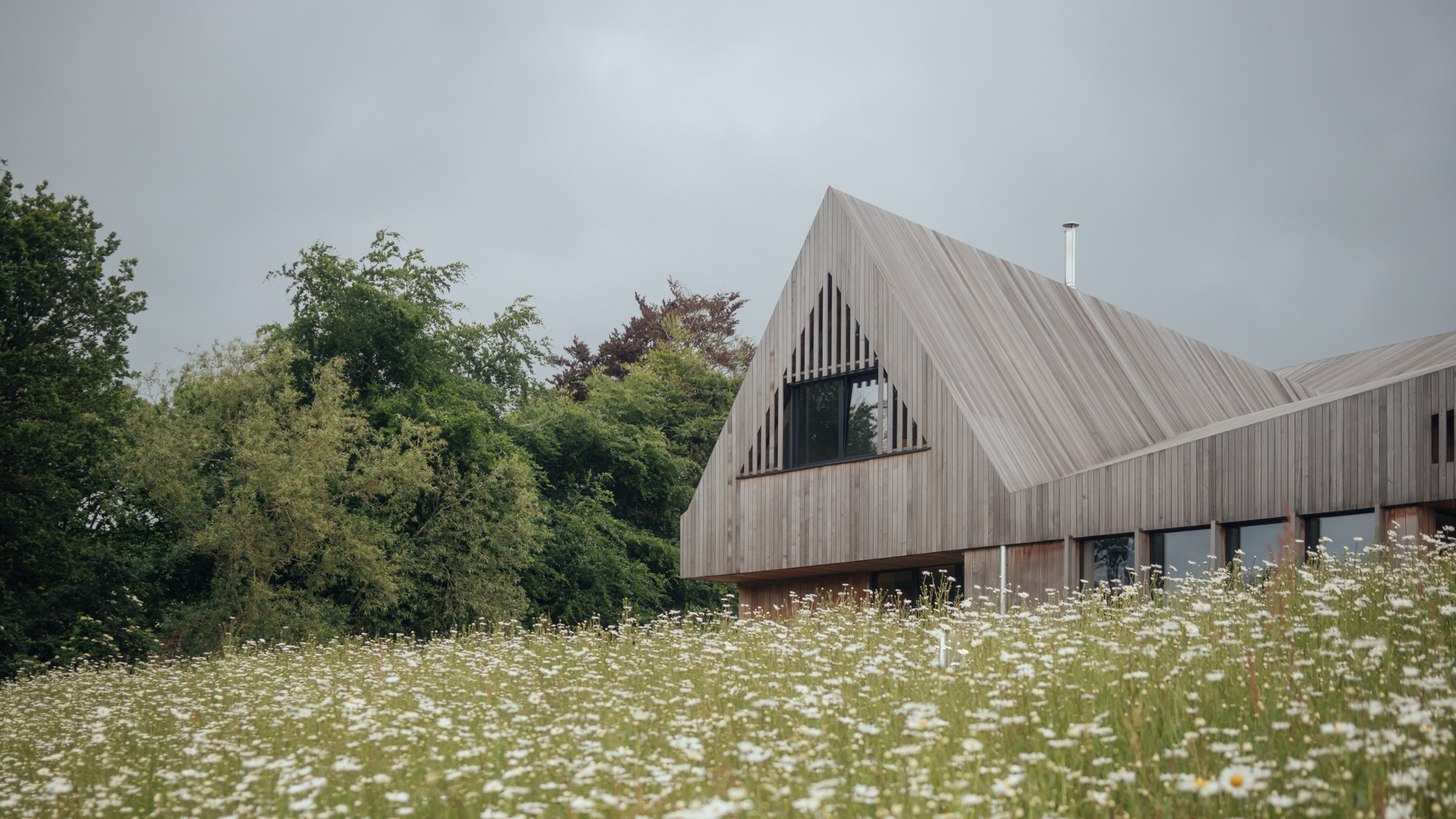
Suffolk house Water Farm is a relative anomaly for an English house. Designed by Studio Bark, it is a completely off-grid family house in the countryside, set on the edge of a designated ‘National Landscape’ (formerly an Area of Outstanding Natural Beauty), amidst a varied site that includes farmland, ancient hedgerows, woods and distant views of the Stour Valley.
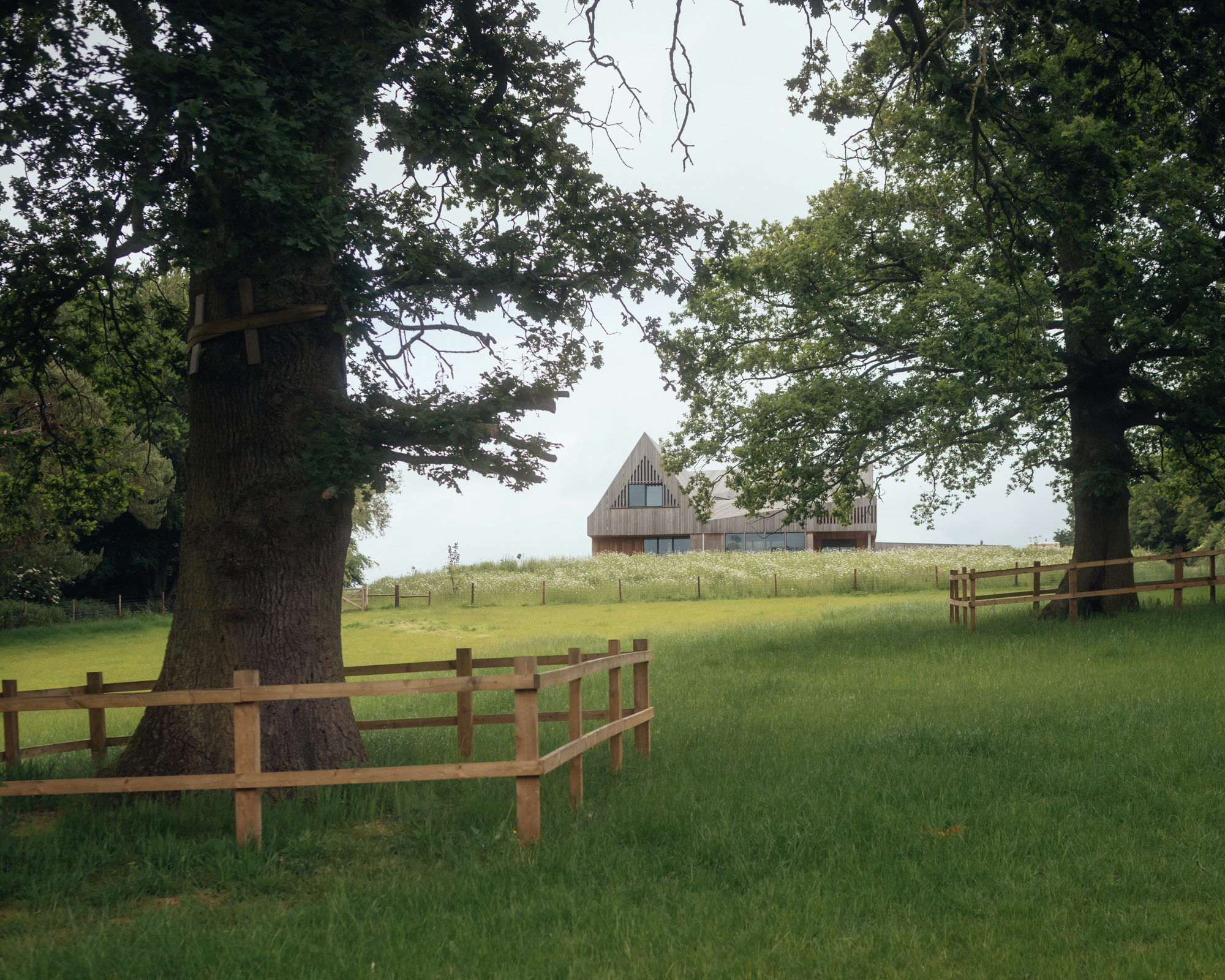
A Suffolk house with a difference
Studio Bark’s approach to the project draws on both the remote location, the local vernacular of barns and other timber structures, and a plan that embraces family life while still offering spaces to retreat within the five-bedroom, 350 sq m structure. Above all, it’s about creating a self-contained world away from the city, a rural idyll that uses contemporary design and sustainable architecture techniques to minimise its ecological footprint and maximise connection with the land.
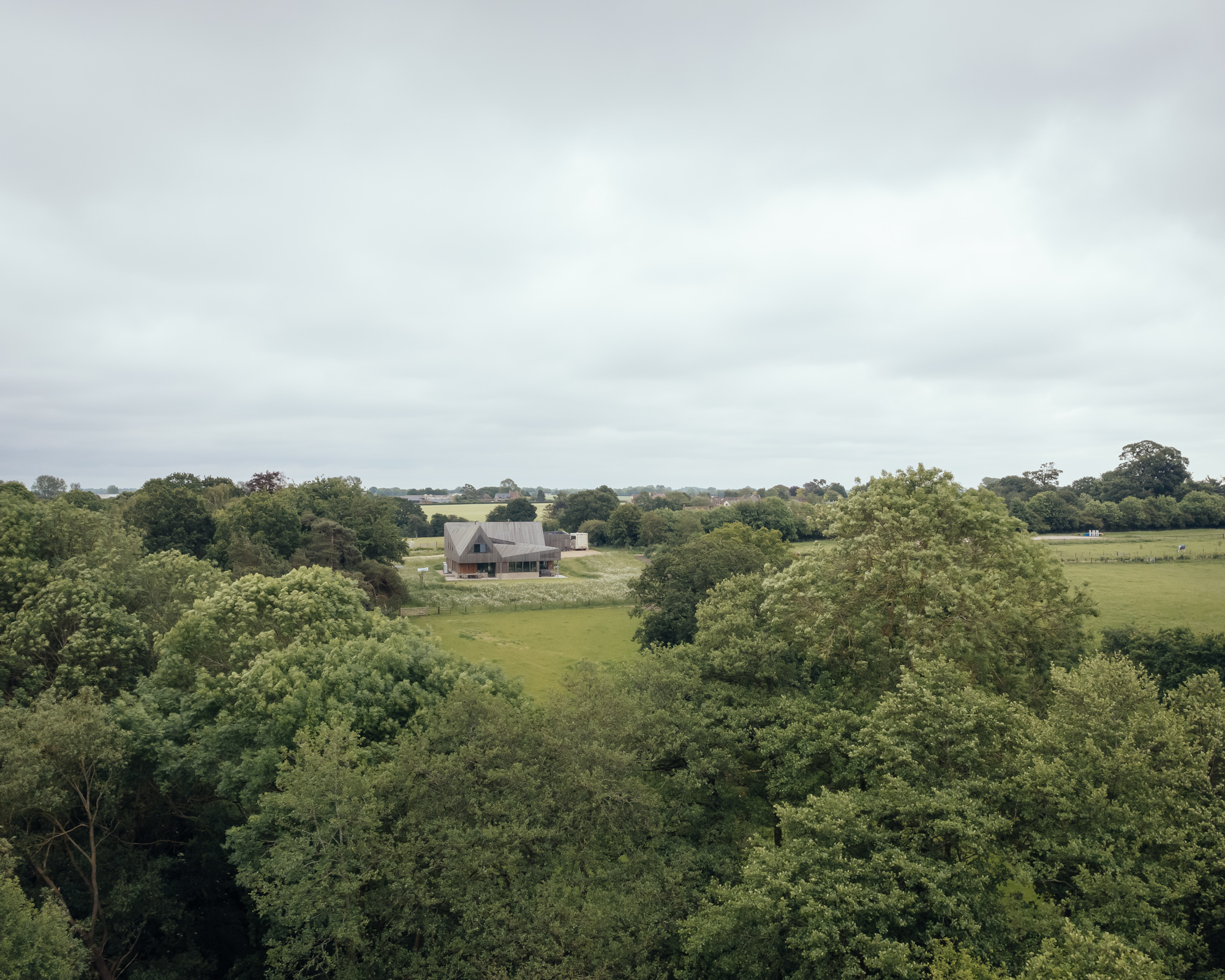
Another idiosyncratic consideration drove the design. ‘[The house is] designed to be both seen and enjoyed,’ the architects say, explaining how ‘the proposal takes advantage of the nearby public right of way, [which allows] passersby to appreciate it as an architectural statement that enhances the scenic quality of the area.’
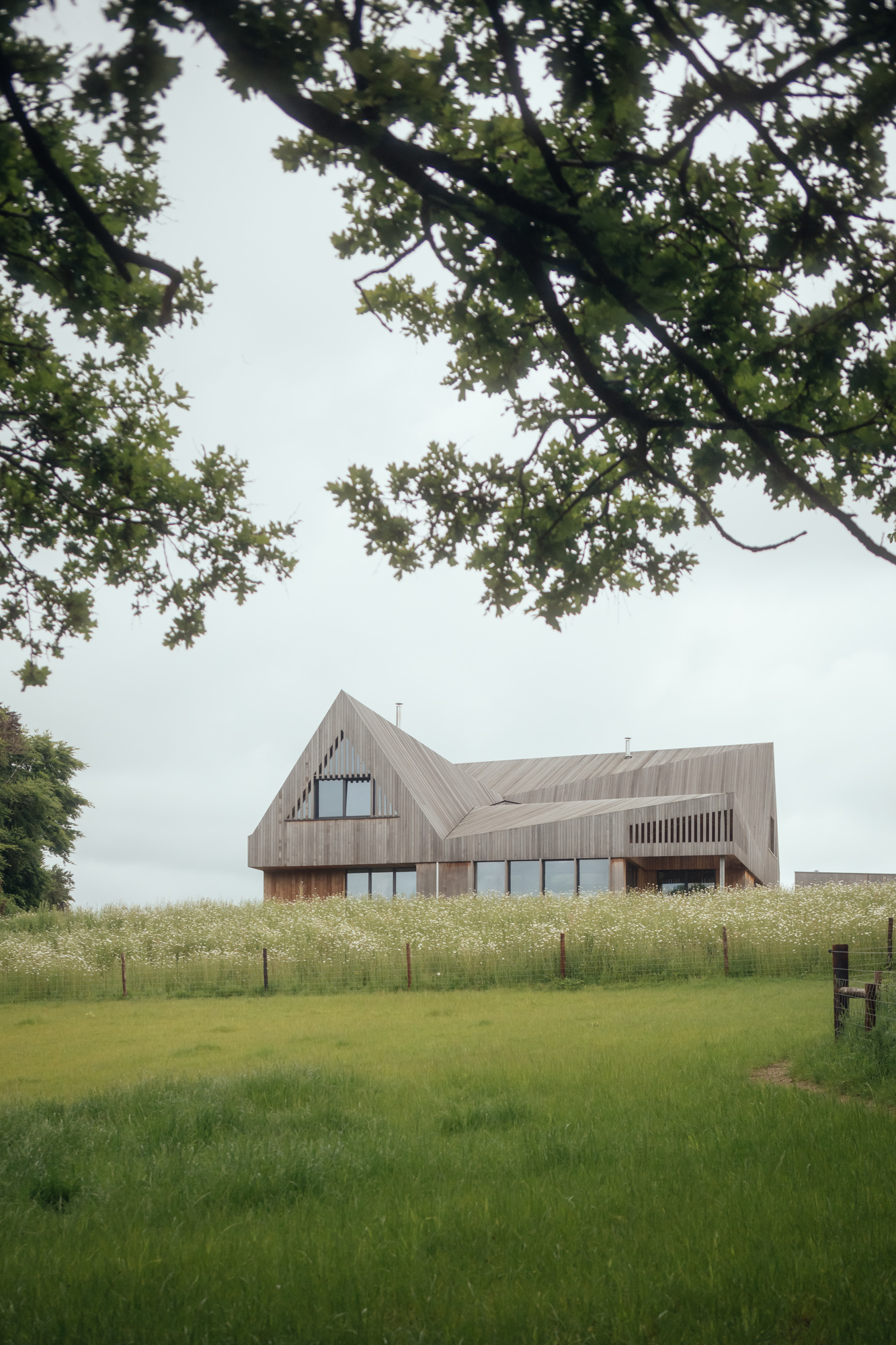
This approach also had to placate the local planning authority, as well as legislation that demands the highest design quality in such National Landscape sites. ‘The challenge for us as both architects and rural planning experts was to create an exceptional family home that addressed these elements (known as in the UK as Paragraph 84 of the National Planning Policy Framework), whilst also being sensitive to local opinion and local planning policy,’ say the London-based architects.
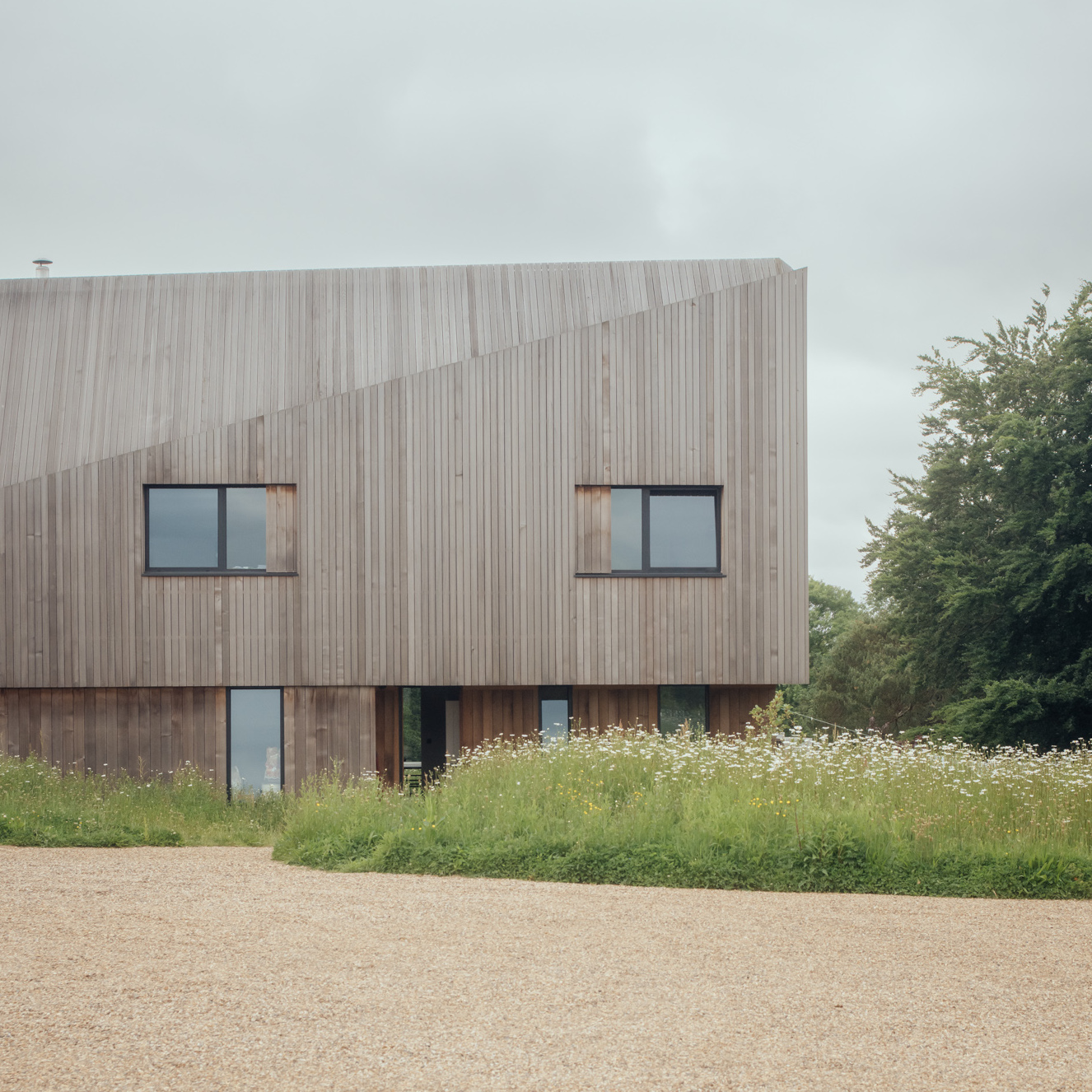
Key environmental design elements include the first principles of layout, ensuring that glazing and shutters are positioned to ensure minimal solar gain in summer. The house is also passively ventilated, with a central courtyard that ensures air moves through the structure, as well as openable windows throughout and high ceilings. The other benefit is plenty of daylight, right into the heart of the house.
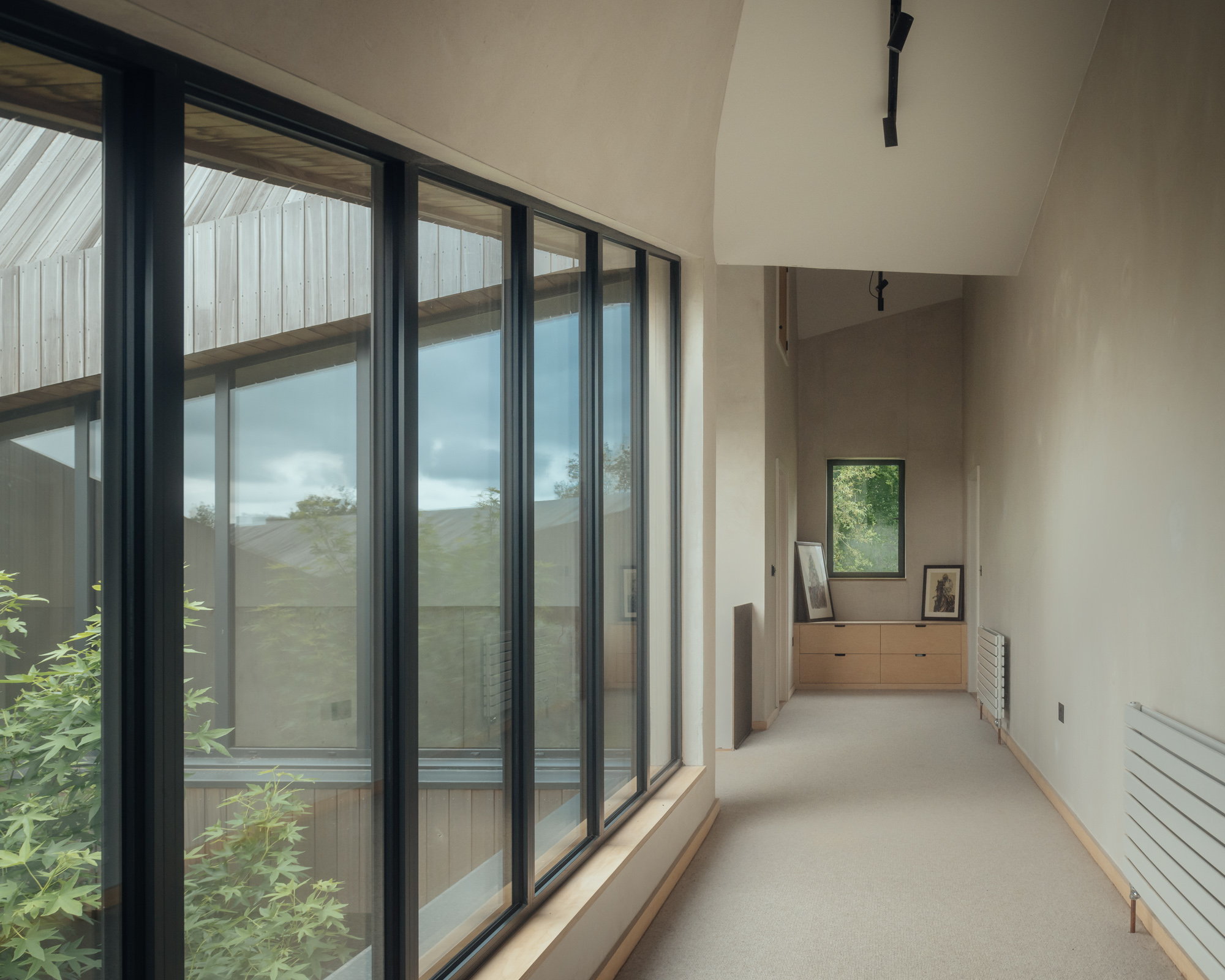
The internal courtyard brings light into the heart of the house
All this is set beneath a dramatic and angular roof form, a piece of timber-clad origami that wraps around the square plan, punctured by the courtyard. The upstairs bedrooms are given another dimension of character thanks to these angular surfaces, while the two main bedrooms occupy the gable ends, with corresponding far-reaching views. ‘It’s great to see how such a bold roof form can sit seamlessly into a complex natural landscape, whilst also framing views across its planes to the picturesque Stour Valley beyond,’ the architects say.
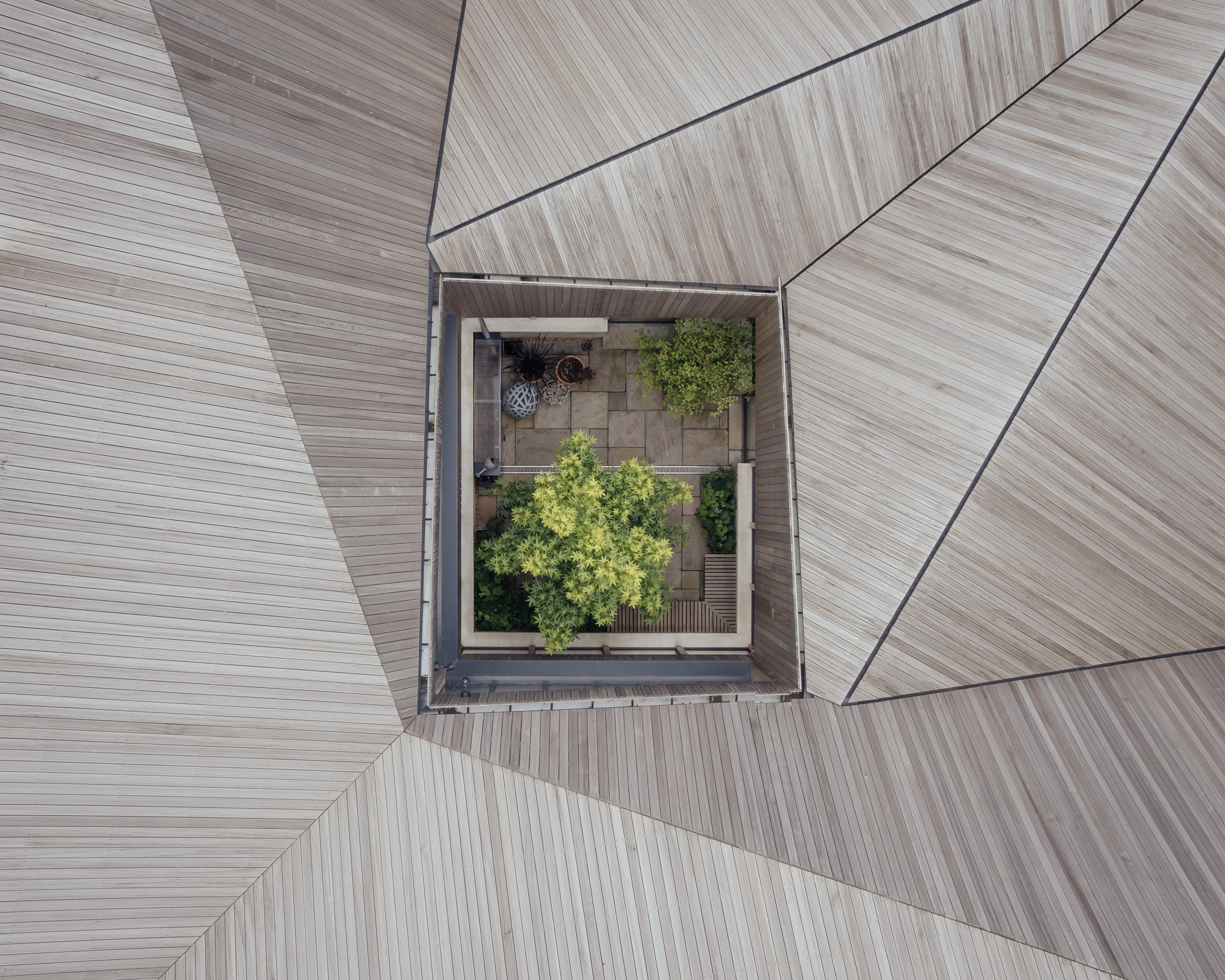
The courtyard seen from above
Downstairs, the ground floor is substantially open plan, yet arranged over different levels to create separation between the spaces. The courtyard at the centre creates a focal point and sightlines that run through the house to the gardens and woodland beyond.
Receive our daily digest of inspiration, escapism and design stories from around the world direct to your inbox.
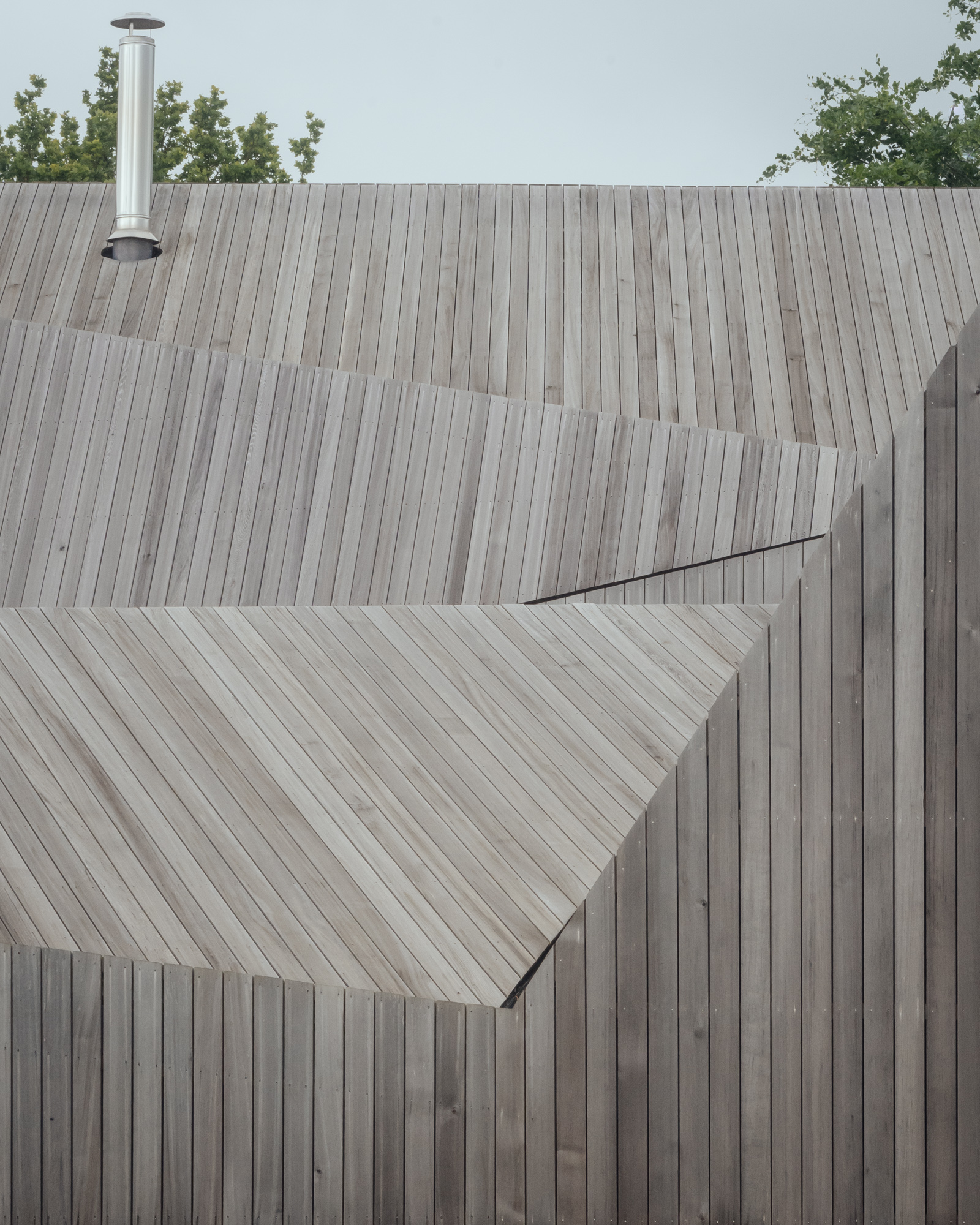
The house has a dramatic roofscape
A separate studio and office building has a large solar array on its roof, along with a large battery bank. A Ground Source Heat Pump provides heating and energy all year round, supplemented by a Midas Biofuel Generator. Water comes from a freshly drilled borehole with filtration system and there is also a compact domestic sewage plant that converts waste to groundwater.
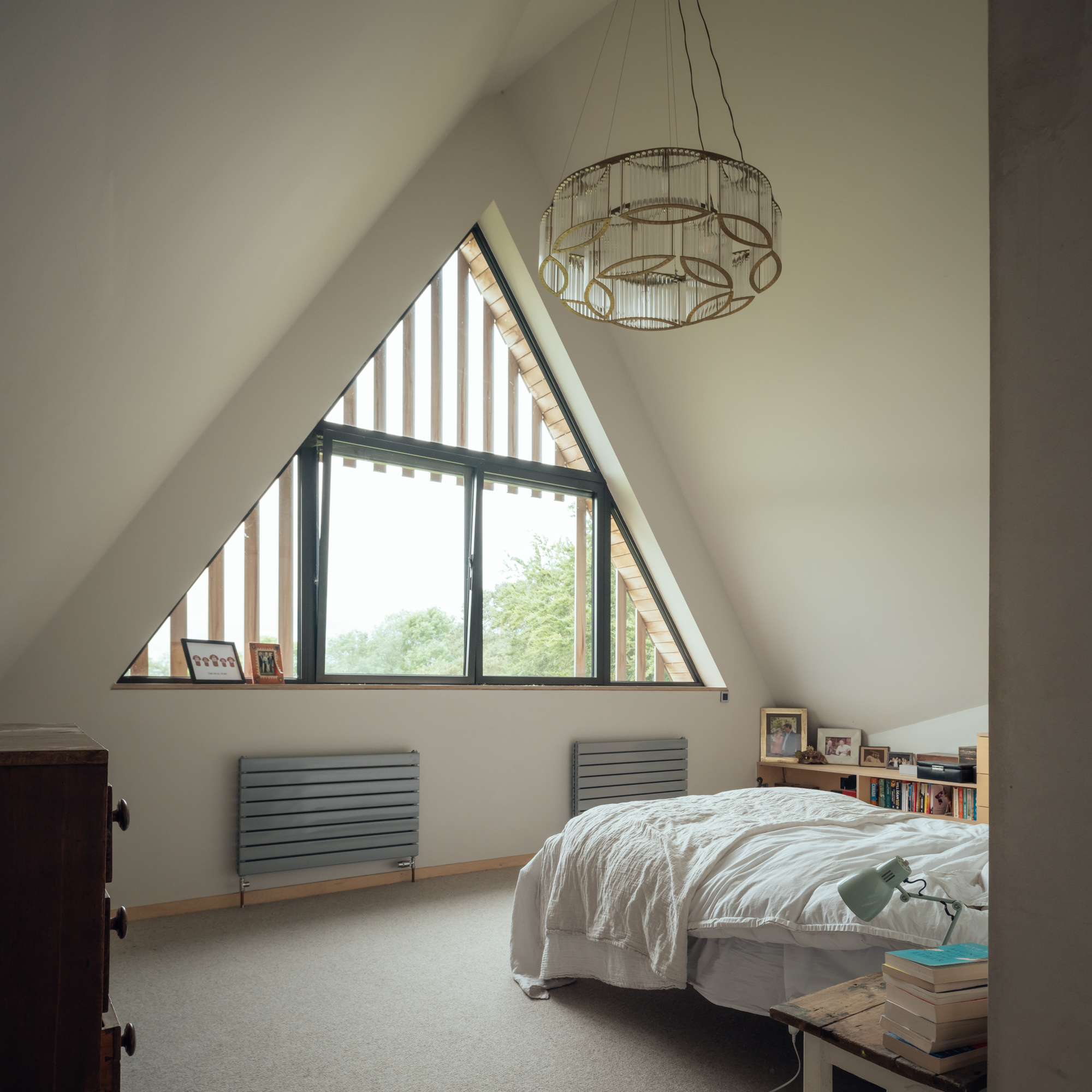
The main bedrooms occupy the gable ends
Water Farm epitomises the ten-year old studio’s approach of finding design-led ways of minimising architecture’s impact without compromising a striking and bold formal language. Founded by Wilf Meynell, Steph Chadwick and Nick Newman, the studio is based in east London.
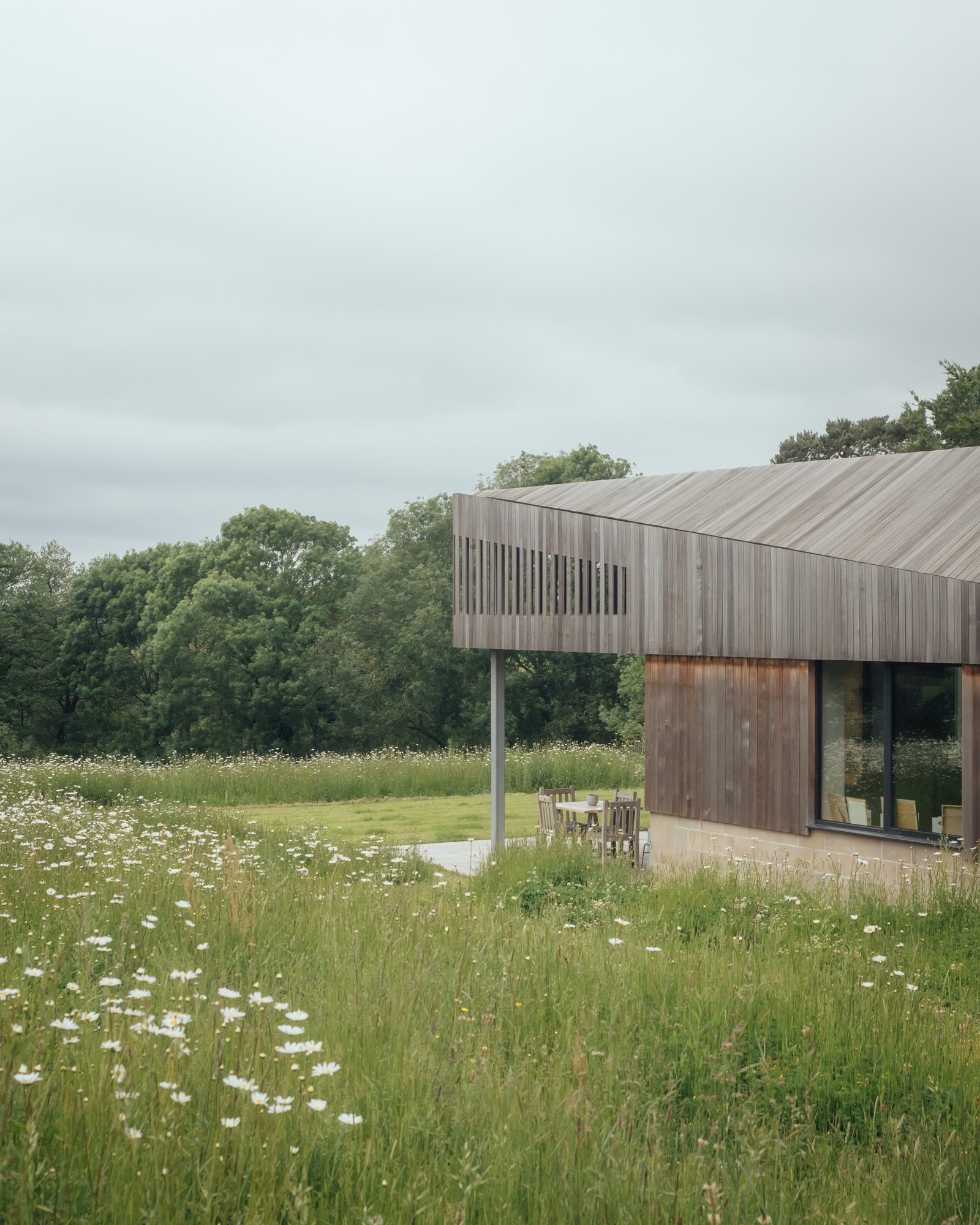
As well as winning a RIBA award, the studio was given the 2024 Activism Award for its sustained approach to high-quality environmental design.
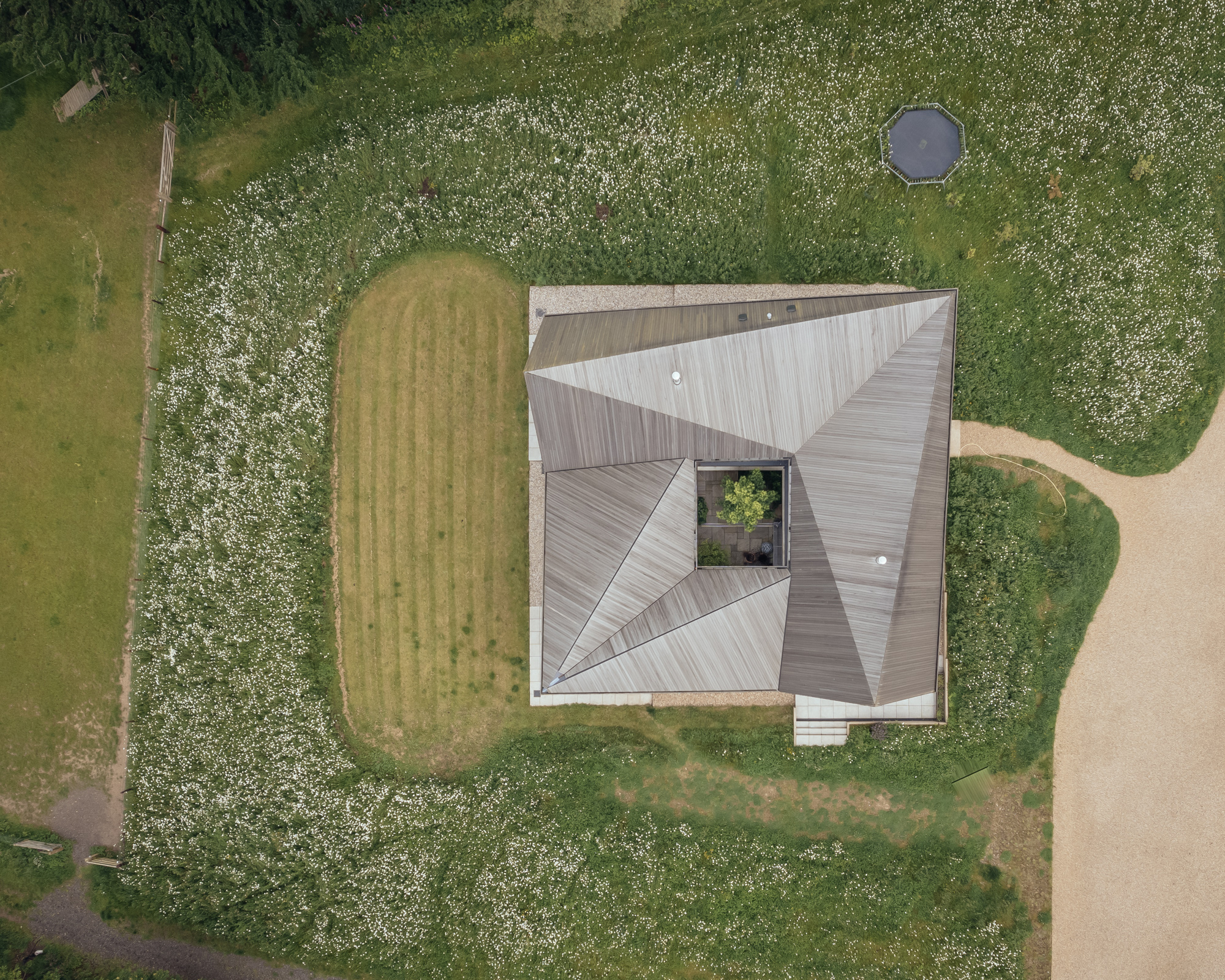
Jonathan Bell has written for Wallpaper* magazine since 1999, covering everything from architecture and transport design to books, tech and graphic design. He is now the magazine’s Transport and Technology Editor. Jonathan has written and edited 15 books, including Concept Car Design, 21st Century House, and The New Modern House. He is also the host of Wallpaper’s first podcast.
-
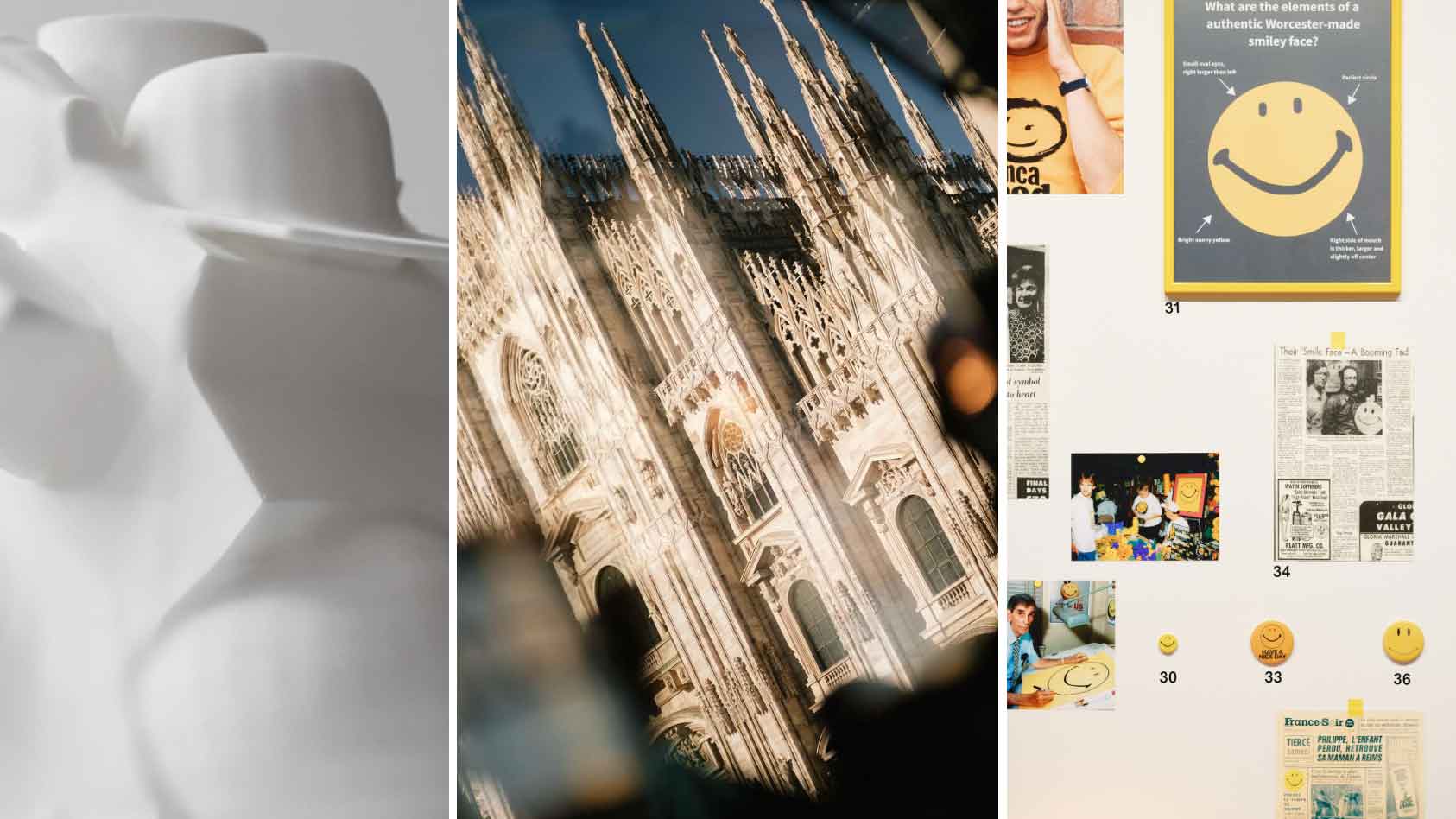 We asked six creative leaders to tell us their design predictions for the year ahead
We asked six creative leaders to tell us their design predictions for the year aheadWhat will be the trends shaping the design world in 2026? Six creative leaders share their creative predictions for next year, alongside some wise advice: be present, connect, embrace AI
-
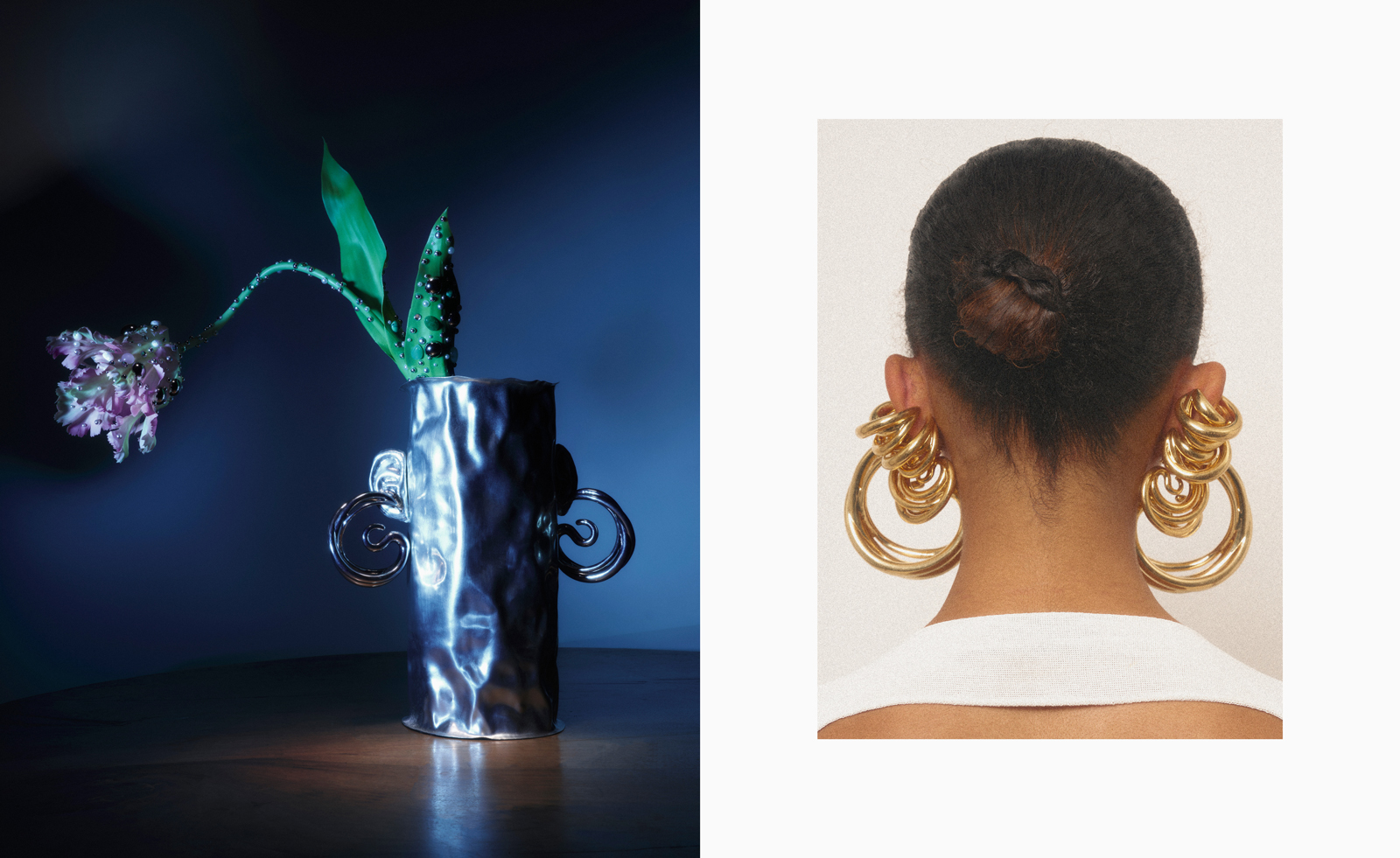 10 watch and jewellery moments that dazzled us in 2025
10 watch and jewellery moments that dazzled us in 2025From unexpected watch collaborations to eclectic materials and offbeat designs, here are the watch and jewellery moments we enjoyed this year
-
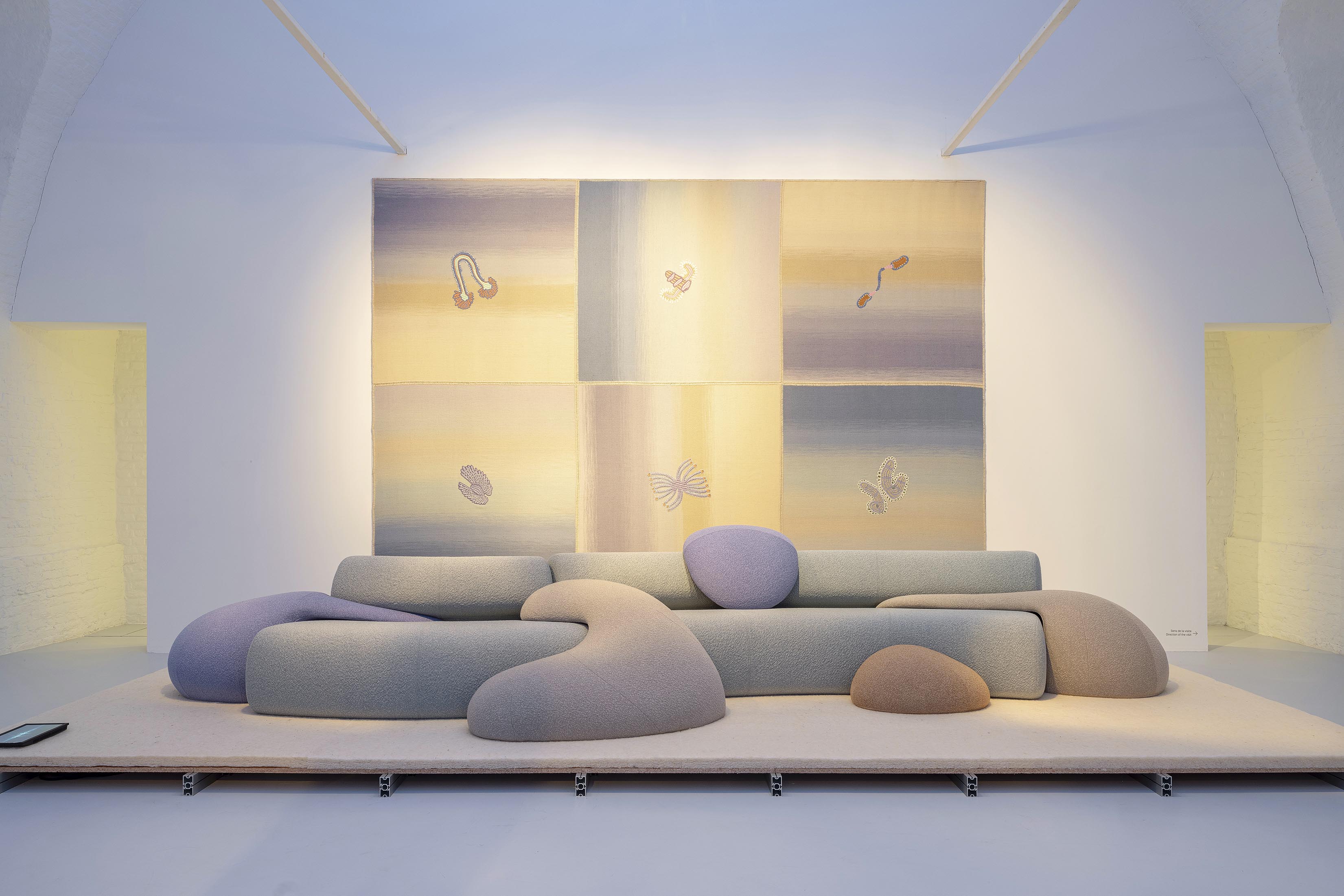 Patricia Urquiola reveals an imaginative inner world in ‘Meta-Morphosa’
Patricia Urquiola reveals an imaginative inner world in ‘Meta-Morphosa’From hybrid creatures and marine motifs to experimental materials and textiles, Meta-Morphosa presents a concentrated view of Patricia Urquiola’s recent work
-
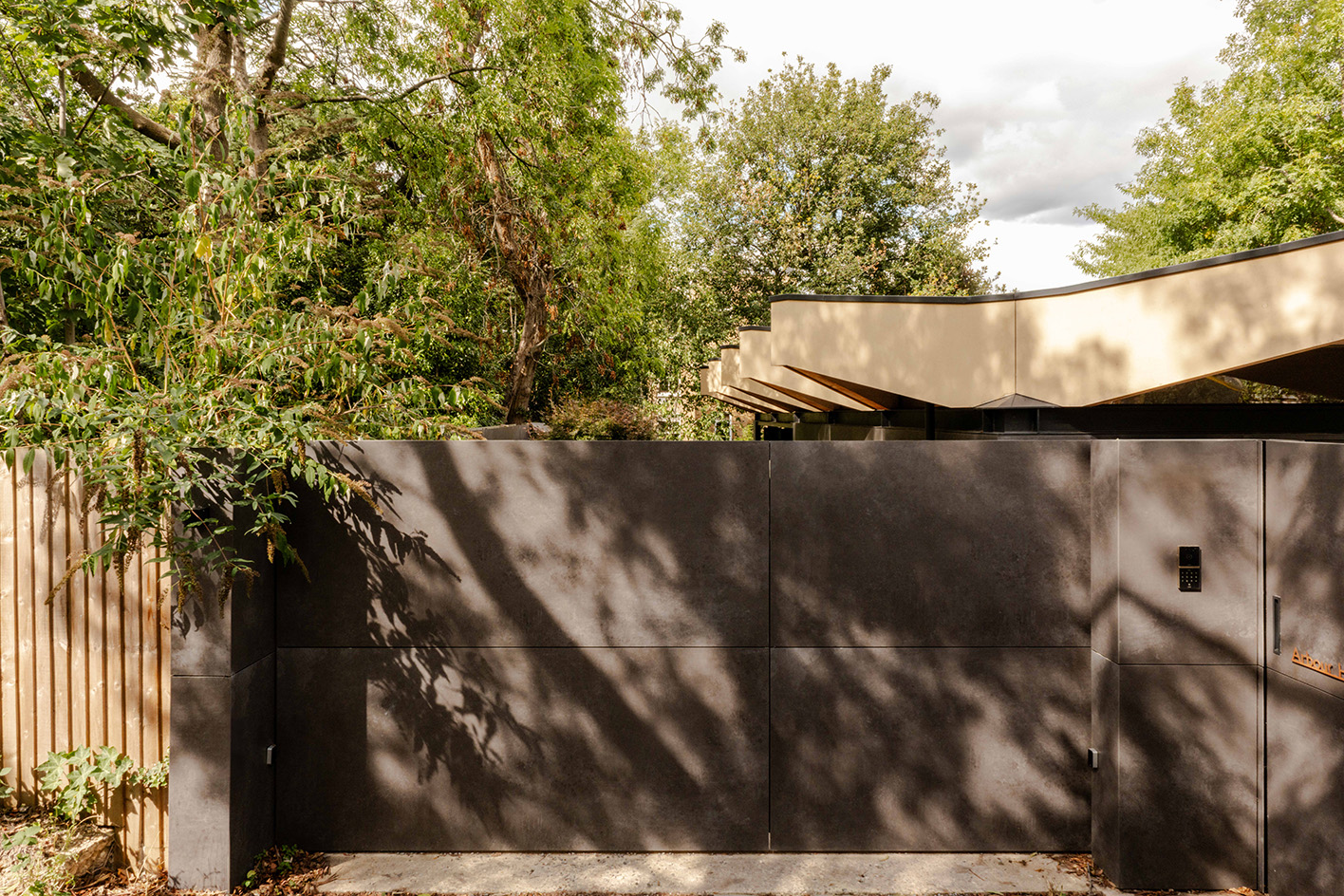 Arbour House is a north London home that lies low but punches high
Arbour House is a north London home that lies low but punches highArbour House by Andrei Saltykov is a low-lying Crouch End home with a striking roof structure that sets it apart
-
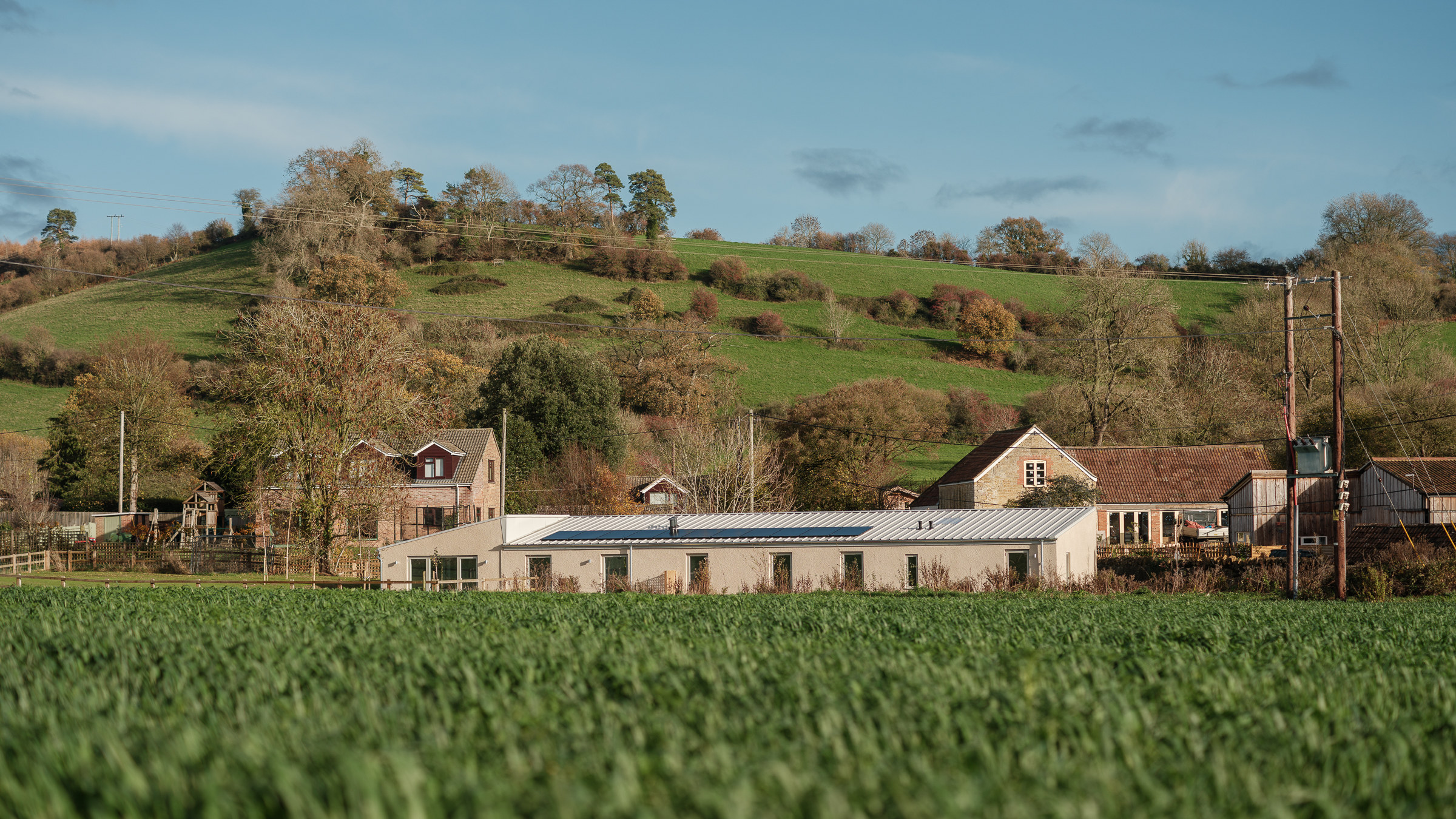 A former agricultural building is transformed into a minimal rural home by Bindloss Dawes
A former agricultural building is transformed into a minimal rural home by Bindloss DawesZero-carbon design meets adaptive re-use in the Tractor Shed, a stripped-back house in a country village by Somerset architects Bindloss Dawes
-
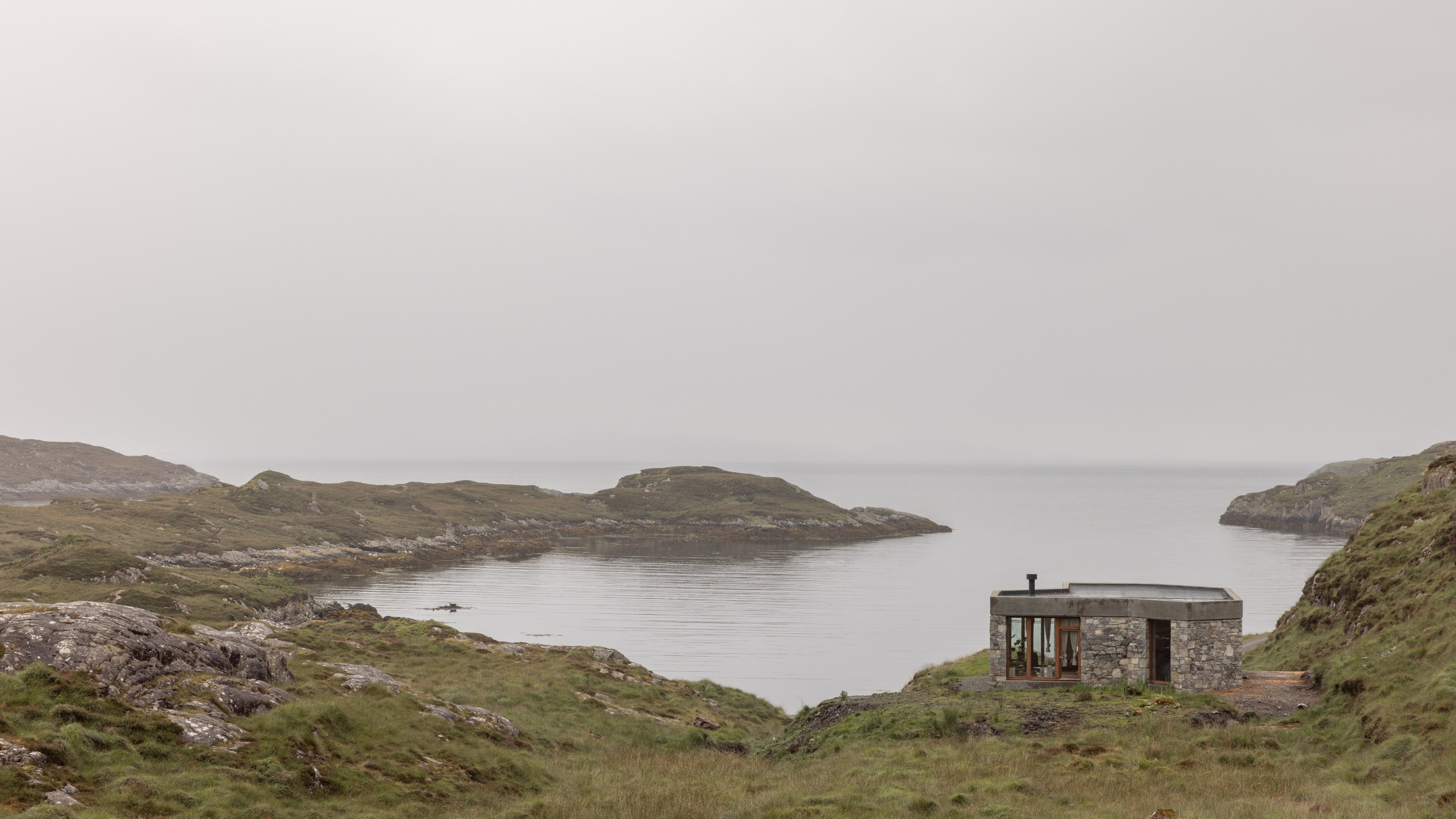 RIBA House of the Year 2025 is a ‘rare mixture of sensitivity and boldness’
RIBA House of the Year 2025 is a ‘rare mixture of sensitivity and boldness’Topping the list of seven shortlisted homes, Izat Arundell’s Hebridean self-build – named Caochan na Creige – is announced as the RIBA House of the Year 2025
-
 In addition to brutalist buildings, Alison Smithson designed some of the most creative Christmas cards we've seen
In addition to brutalist buildings, Alison Smithson designed some of the most creative Christmas cards we've seenThe architect’s collection of season’s greetings is on show at the Roca London Gallery, just in time for the holidays
-
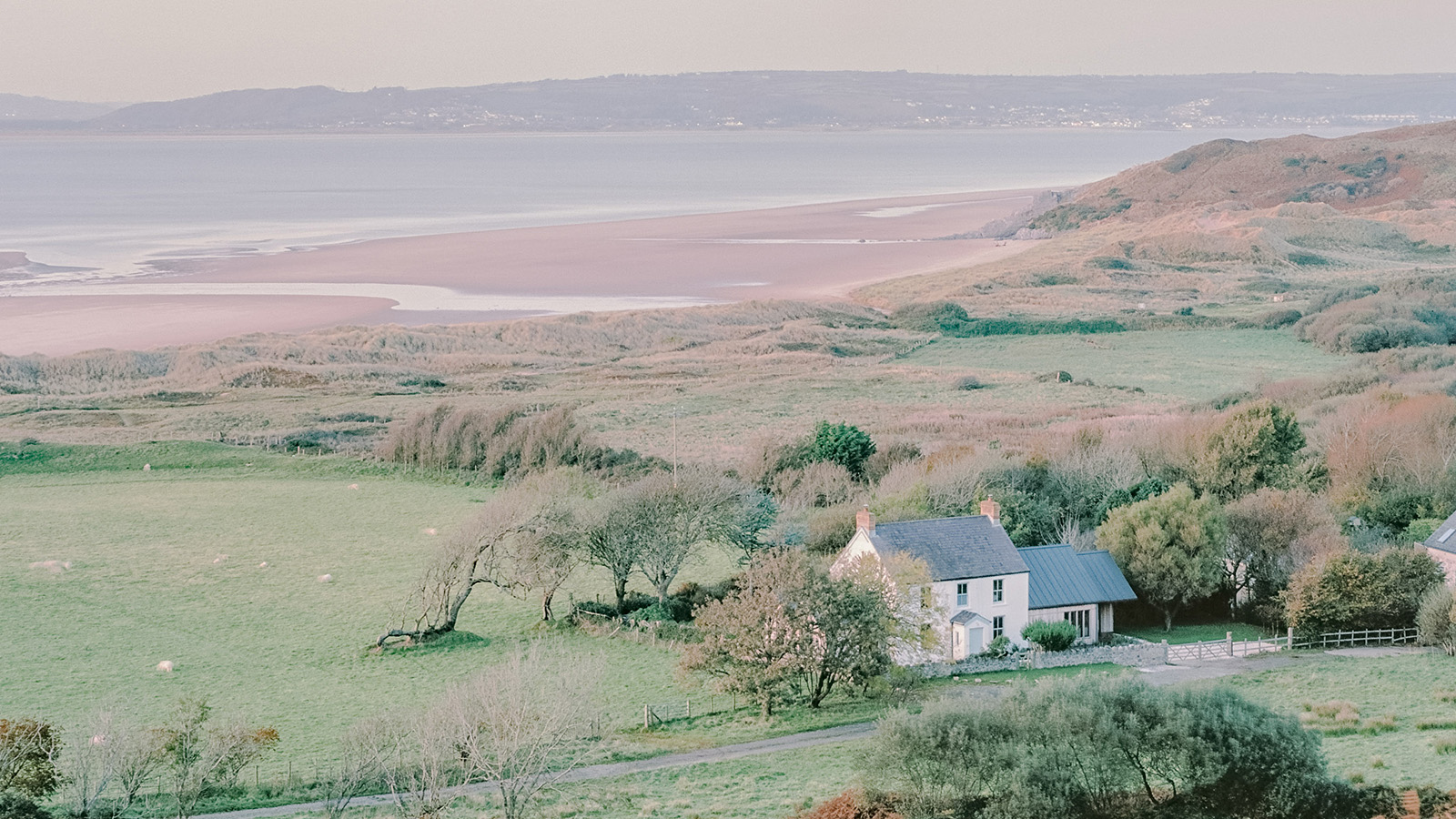 In South Wales, a remote coastal farmhouse flaunts its modern revamp, primed for hosting
In South Wales, a remote coastal farmhouse flaunts its modern revamp, primed for hostingA farmhouse perched on the Gower Peninsula, Delfyd Farm reveals its ground-floor refresh by architecture studio Rural Office, which created a cosy home with breathtaking views
-
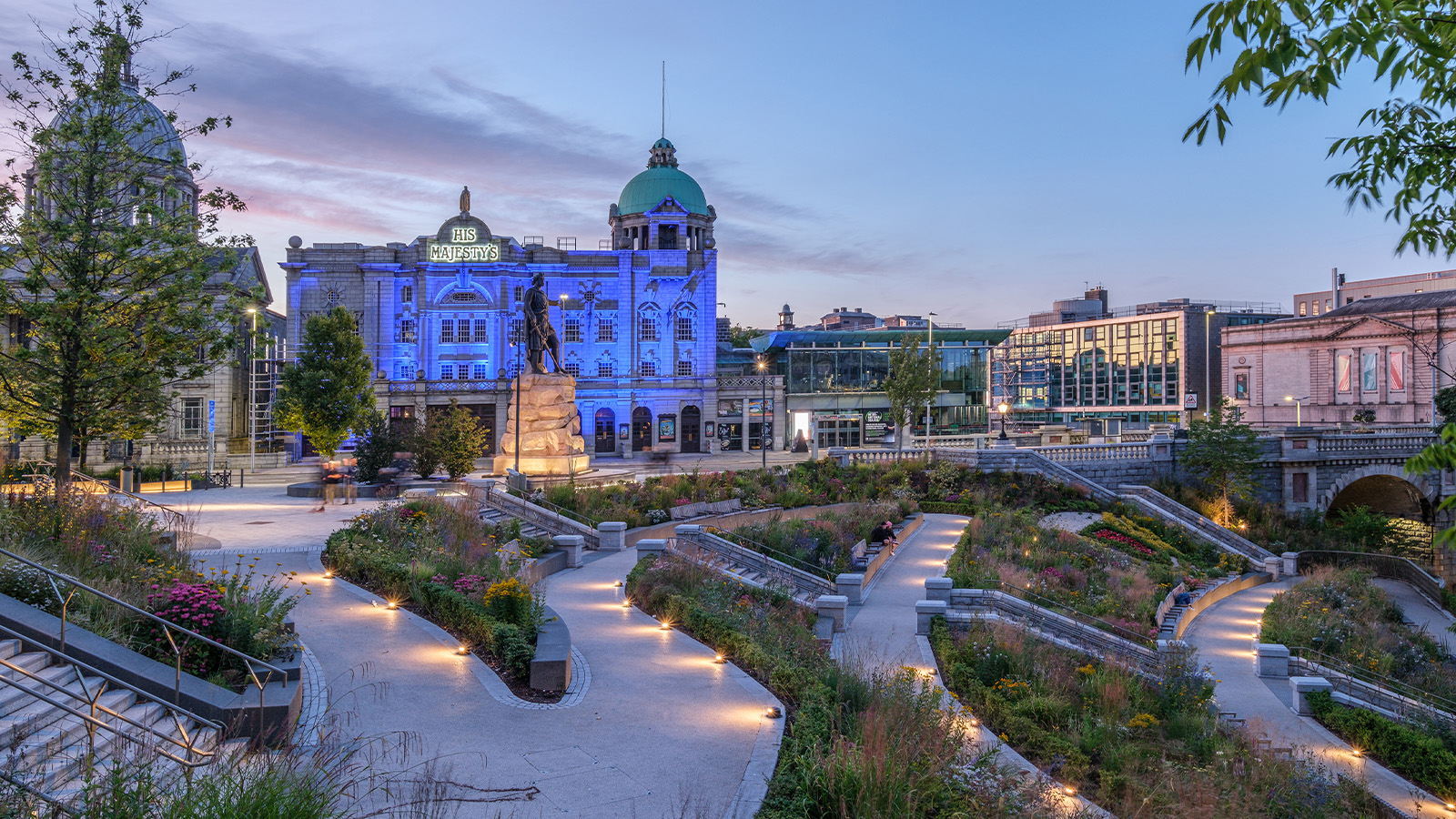 A revived public space in Aberdeen is named Scotland’s building of the year
A revived public space in Aberdeen is named Scotland’s building of the yearAberdeen's Union Terrace Gardens by Stallan-Brand Architecture + Design and LDA Design wins the 2025 Andrew Doolan Best Building in Scotland Award
-
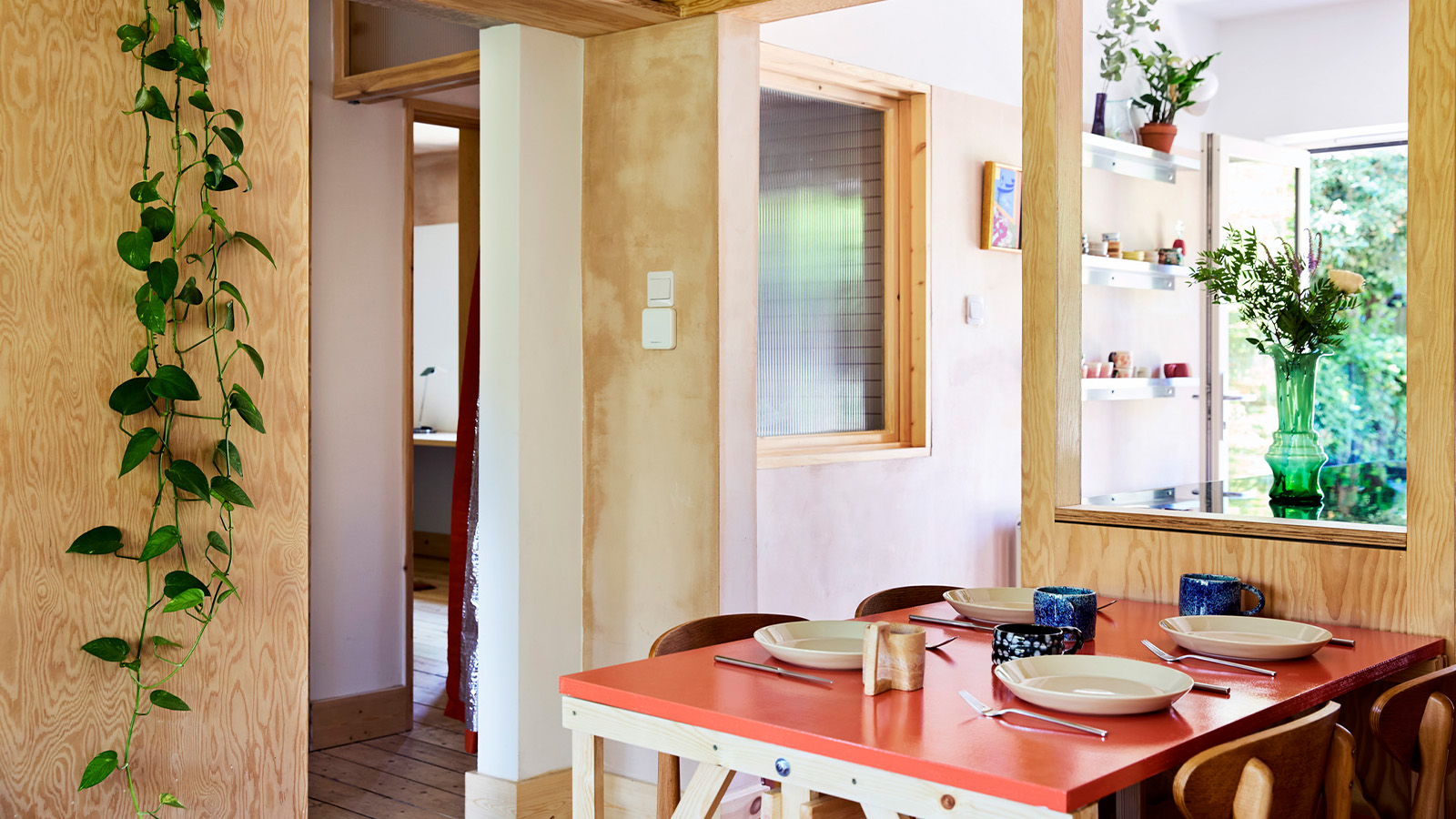 A refreshed 1950s apartment in East London allows for moments of discovery
A refreshed 1950s apartment in East London allows for moments of discoveryWith this 1950s apartment redesign, London-based architects Studio Naama wanted to create a residence which reflects the fun and individual nature of the clients
-
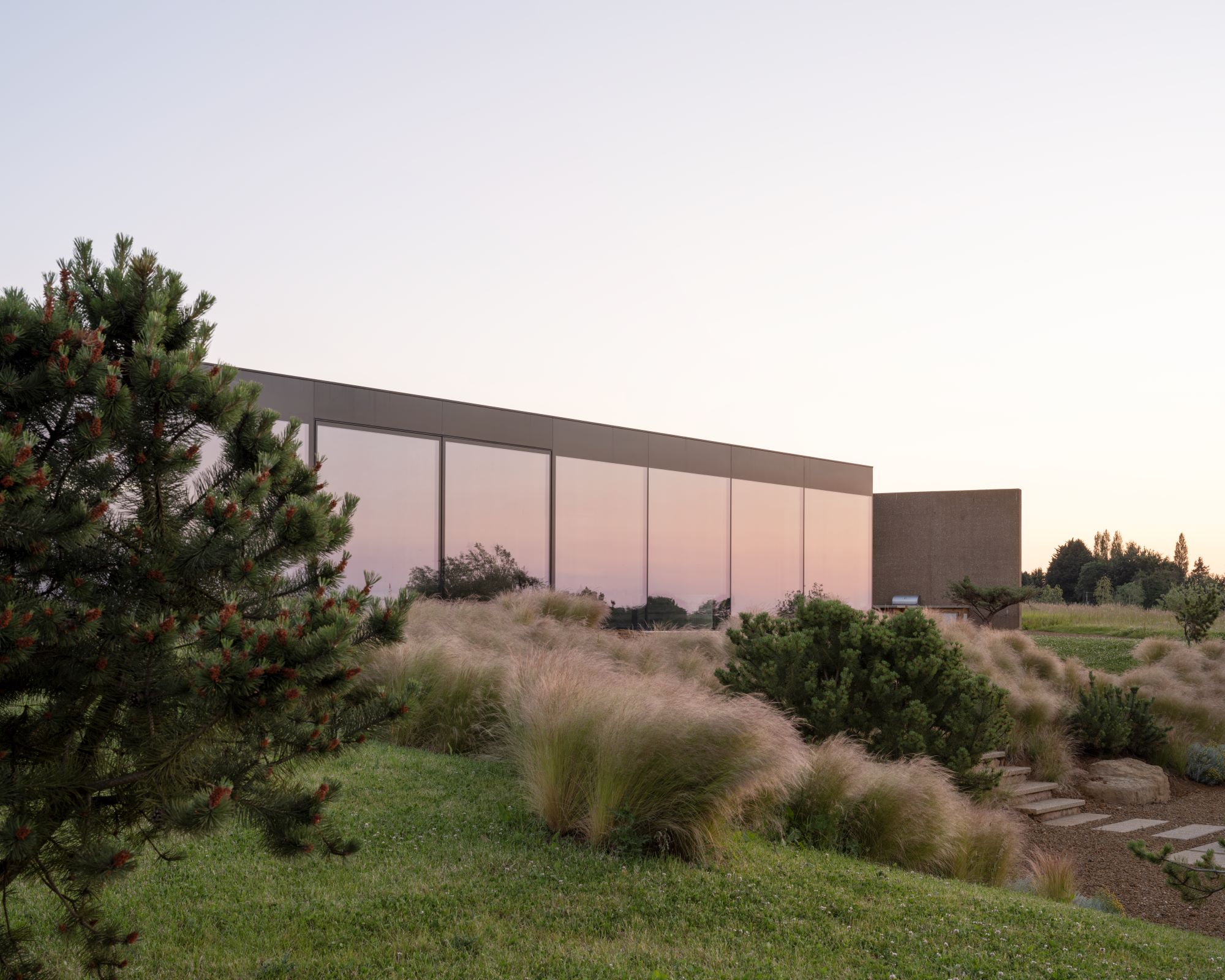 In this Cotswolds home, drama meets minimalism
In this Cotswolds home, drama meets minimalismCotswolds home Hiaven house, with interiors designed by McLaren Excell, is a perfect blend of contemporary chic and calm, countryside drama